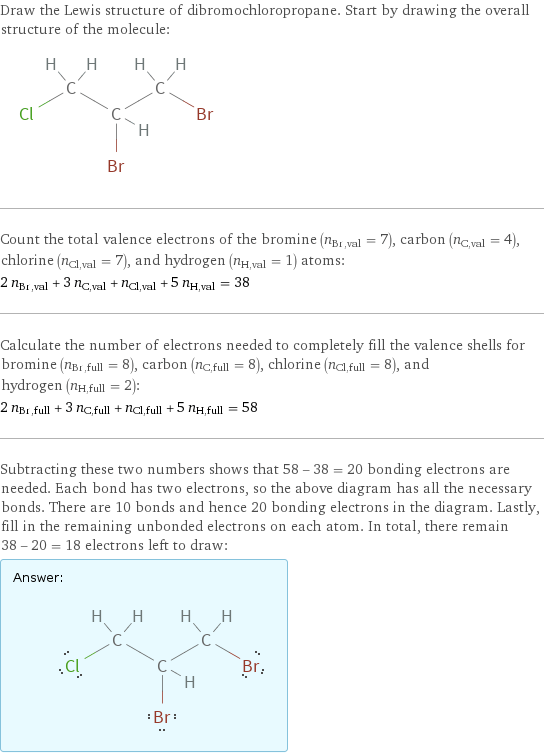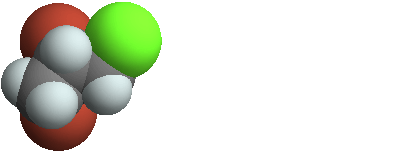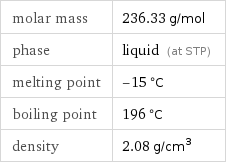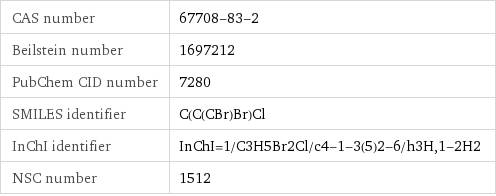Input interpretation

dibromochloropropane
Chemical names and formulas

formula | C_3H_5Br_2Cl name | dibromochloropropane IUPAC name | 1, 2-dibromo-3-chloro-propane mass fractions | Br (bromine) 67.6% | C (carbon) 15.2% | Cl (chlorine) 15% | H (hydrogen) 2.13%
Lewis structure

Draw the Lewis structure of dibromochloropropane. Start by drawing the overall structure of the molecule: Count the total valence electrons of the bromine (n_Br, val = 7), carbon (n_C, val = 4), chlorine (n_Cl, val = 7), and hydrogen (n_H, val = 1) atoms: 2 n_Br, val + 3 n_C, val + n_Cl, val + 5 n_H, val = 38 Calculate the number of electrons needed to completely fill the valence shells for bromine (n_Br, full = 8), carbon (n_C, full = 8), chlorine (n_Cl, full = 8), and hydrogen (n_H, full = 2): 2 n_Br, full + 3 n_C, full + n_Cl, full + 5 n_H, full = 58 Subtracting these two numbers shows that 58 - 38 = 20 bonding electrons are needed. Each bond has two electrons, so the above diagram has all the necessary bonds. There are 10 bonds and hence 20 bonding electrons in the diagram. Lastly, fill in the remaining unbonded electrons on each atom. In total, there remain 38 - 20 = 18 electrons left to draw: Answer: | |
3D structure

3D structure
Basic properties

molar mass | 236.33 g/mol phase | liquid (at STP) melting point | -15 °C boiling point | 196 °C density | 2.08 g/cm^3
Units

Liquid properties (at STP)

density | 2.08 g/cm^3
Units

Thermodynamic properties

critical temperature | 692 K critical pressure | 5.13 MPa (at STP)
Chemical identifiers

CAS number | 67708-83-2 Beilstein number | 1697212 PubChem CID number | 7280 SMILES identifier | C(C(CBr)Br)Cl InChI identifier | InChI=1/C3H5Br2Cl/c4-1-3(5)2-6/h3H, 1-2H2 NSC number | 1512